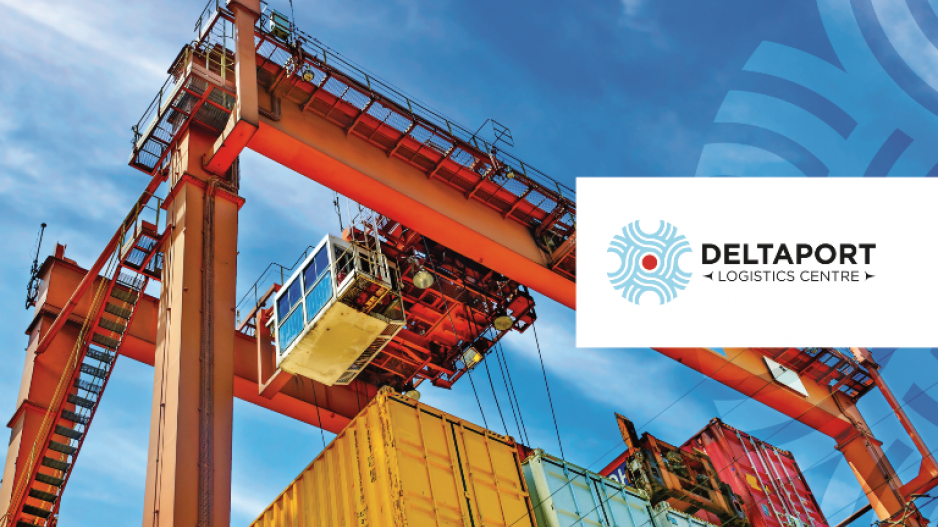Metro Vancouver’s titans of development are well known; Westbank, Wall Financial, Bosa, Concert, Onni and Aquilini all come to mind. However, in the region’s fast-paced world of residential, commercial and industrial real estate, new players are constantly emerging and finding their place.
One of those players is the TFN Economic Development Corporation (TEDC), which is in the middle of building out Tsawwassen First Nation (TFN) as a complete community of approximately 10 million square feet of development.
The corporation was formed after TFN signed a historic treaty with the governments of Canada and British Columbia in 2009, creating the first urban agreement of its kind in the province. It provided TFN with self-governing and law-making powers as well as 1,800 acres of land. At the time of the signing, the mood in the community was optimistic; many spoke about a future of economic independence and prosperity for TFN members.
It seems now, promises made were promises kept.
With a mandate to develop TFN in an economically, socially and environmentally sustainable manner, TEDC set out an ambitious plan – a plan that is putting the small community, and its members, on the map.
Last year TEDC, along with its development partners Ivanhoé Cambridge and Property Development Group, opened Tsawwassen Mills and Tsawwassen Commons, a two-million-square-foot retail facility. Capitalizing on close to eight million passengers who use the neighbouring Tsawwassen Ferry Terminal every year and the fast-growing residential communities south of the Fraser, the mall is already proving to be a major retail destination for shoppers in the southwest region of Metro Vancouver. Both developments provide construction, retail and cultural employment opportunities for TFN members and member-owned businesses.
“Through effective governance and strategic partnerships, we have achieved a great deal,” says TFN’s Chief Bryce Williams. “Significant community, industrial, commercial and infrastructure developments, not to mention the tremendously exciting Tsawwassen Mills, have attracted world-class names in business to our Nation.”
Naturally, TEDC has also supported TFN residential development to create the 270-acre Tsawwassen Shores master-planned community, being built by Aquilini Development. This is just the latest venture that will eventually see 6,000 people call the neighbourhood home.
Development like this provides economic opportunities for both TFN members and the Lower Mainland; however, it is TEDC’s plan for TFN’s industrial land that is currently earning a lot of attention.
Quite simply, Metro Vancouver is running out of vacant industrial land. The demand for residential development, the restrictions on developing within the Agricultural Land Reserve and the geographical constraints of mountains, ocean and the United States border have combined to create an incredibly low supply of large sites for logistics companies. At the same time, trade with the Pacific Rim is expanding and the efficient movement of goods is crucial to creating the jobs and economic growth needed in the future.
TEDC’s Deltaport Logistics Centre provides a unique opportunity for potential industrial tenants looking for land.
Deltaport Logistics Centre is strategically located on 300 acres adjacent to the Roberts Bank Deltaport, Canada’s largest container terminal. A proposed second, three-berth terminal would provide the equivalent of 4.8 million standard-sized shipping containers of capacity. If approved, the terminal could be up and running within 10 years.
Chris MacCauley, senior vice-president of CBRE, believes that “Deltaport Logistics Centre is located at Mile 1 for the logistics transportation network for Western Canada and represents a unique opportunity that is being presented to the marketplace by Tsawwassen First Nation.”
Independent studies have shown that tenants in Deltaport Logistics Centre can realize savings of between 10% and 20% on shipping and container movement costs compared with tenants located in other Metro Vancouver industrial parks. This is due to the proximity of Deltaport Logistics Centre to the port and the road and rail networks that serve it.
The first phase, 100 acres, is already fully leased to tenants such as Delta iPort, Port of Vancouver, Euro Asia and Chevron’s diesel cardlock facility.
There is no doubt growth will happen at Deltaport Logistics Centre. The remaining parcel of 200 acres has now been released to the market. Lease terms for filled and serviced sites are for up to 60 years. Land-use laws, regulations and building codes follow conventional protocols used in other neighbouring municipalities. When complete, approximately five million square feet of space will be added to Metro Vancouver’s logistics sector supply.
TFN, through its Economic Development Corporation, is a model for other First Nations communities forging partnerships to seize opportunities for their members.
But Chris Hartman, CEO of TEDC, says it goes beyond that. TFN has created a new economic node for the entire region.
“Through our development, we will create 8,000 permanent jobs and all the ancillary businesses that go with that. We will continue to develop the assets that we’ve got and do it in a manner that is respectful to the community – and watch the community flourish.”




